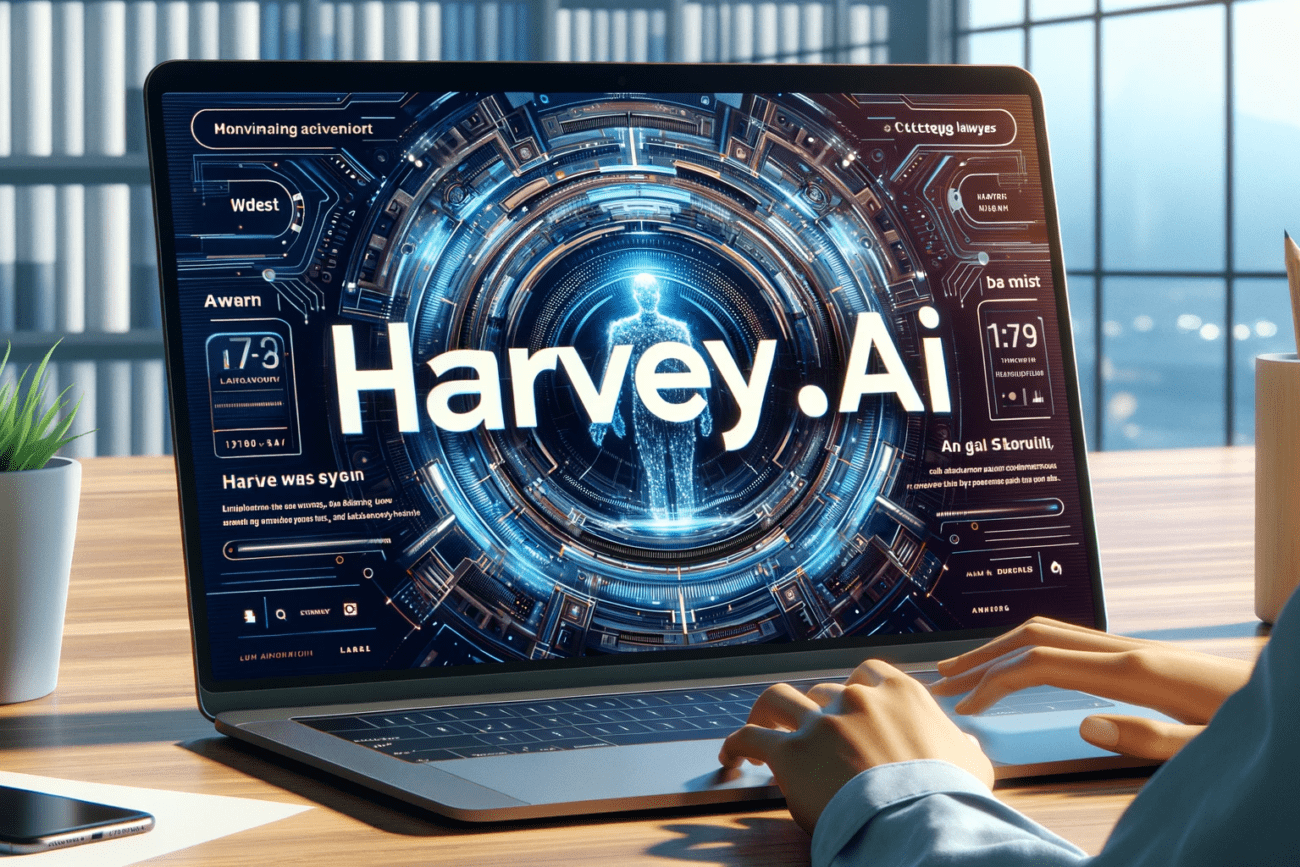
Key points:
- The Italian OpenAI initiative drives AI integration in Italy’s legal sector, promoting responsible development, open collaboration, and ethical AI deployment.
- Real-world AI applications are revolutionizing legal services, including contract analysis, document review, legal research, and dispute resolution in Italy.
- The initiative impacts Italy’s legal landscape by improving legal services, automating dispute resolution, and shaping legal education.
- Key challenges and opportunities in AI adoption include data protection, potential bias, workforce impact, and the evolution of Italy’s legal framework to address AI advancements.
As artificial intelligence (AI) takes the world by storm, Italy emerges as a key player in the AI revolution. The Italian OpenAI initiative is reshaping the legal landscape with groundbreaking advancements and real-world applications. In this article, we’ll explore the emergence of AI in Italy, delve into the legal framework, and reveal some astonishing real-world applications that are changing the game in Italy’s legal sector. Stay tuned to find out how AI is revolutionizing law in Italy.
The Emergence of Artificial Intelligence in Italy
Italy’s AI scene is booming, thanks to:
- Investments in AI research: Italy has made substantial investments in AI research, particularly in natural language processing, machine learning, and robotics. The Italian Institute of Technology is a prime example of this commitment.
- Support for startups: Italy’s government has implemented various programs to support AI startups, including funding, incubators, and partnerships with universities and research centers. One such program is the Startup Italia initiative.
- Collaboration with European partners: Italy actively participates in European AI initiatives, such as the European Commission’s AI strategy and the European AI Alliance, fostering cooperation and innovation in AI across the continent.
The Legal Framework of AI in Italy
Italy’s comprehensive legal framework for AI includes:
- Data protection and privacy: The General Data Protection Regulation (GDPR) governs data protection and privacy in Italy and throughout the European Union. This regulation directly impacts AI systems that rely on large data sets.
- Intellectual property: Italy’s intellectual property laws protect AI-related innovations, including patents, copyrights, and trade secrets. These protections encourage innovation and investment in AI technologies.
- Liability and accountability: As AI systems become more autonomous, questions of liability and accountability become increasingly important. Italian law is evolving to address these concerns, with ongoing discussions surrounding the potential introduction of new legal frameworks for AI systems.
Real-World Applications of AI in Italy’s Legal Sector
Italy is witnessing a surge in AI applications within its legal sector. Let’s explore some exciting real-world examples:- ROSS Intelligence: This AI-powered legal research platform helps lawyers find relevant case law and statutes faster than ever, saving time and improving the quality of legal advice.
- Luminance: This AI-driven document review platform enables law firms to analyze and review contracts and other legal documents with unprecedented speed and accuracy, reducing costs and risks for clients.
- LegalMation: This groundbreaking AI platform automates the creation of litigation documents, such as complaints and answers, streamlining the legal process and saving time for attorneys and clients alike.
- rAIsolution: This Italian-developed AI platform uses natural language processing to assist with dispute resolution, offering a faster and more cost-effective alternative to traditional court proceedings.
- Lexalgo: This innovative Italian legal tech company provides AI-powered tools for contract analysis, compliance, and risk assessment, helping law firms and businesses navigate complex legal frameworks more efficiently.
Key Components of the Italian OpenAI Initiative
The Italian OpenAI initiative promotes the responsible development and use of AI in Italy, focusing on fostering innovation, collaboration, and transparency. Key components of the initiative include:- Research and development: The initiative supports cutting-edge research in AI, with a focus on areas such as machine learning, natural language processing, and robotics.
- Open-source collaboration: By promoting open-source collaboration, the initiative encourages researchers and developers to share knowledge, data, and tools, fostering a culture of openness and cooperation within the AI community.
- Ethical guidelines: The Italian OpenAI initiative emphasizes the importance of ethical considerations in AI development and deployment, including data protection, privacy, transparency, and accountability.
Implications for the Italian Legal System
The Italian OpenAI initiative has far-reaching implications for the country’s legal system, including:- Improved legal services: AI technologies have the potential to streamline and enhance legal services, such as contract analysis, document review, and legal research. This can result in cost savings, increased efficiency, and improved access to justice.
- Automated dispute resolution: The use of AI in dispute resolution can help to speed up the resolution of legal disputes, reducing the burden on courts and providing faster, more cost-effective solutions for parties involved.
- Legal education: As AI becomes increasingly integrated into the legal profession, law schools and continuing education programs must adapt their curricula to ensure that legal professionals are adequately equipped to navigate the rapidly evolving landscape.
Challenges and Opportunities
Despite its potential benefits, the Italian OpenAI initiative also faces a number of challenges and opportunities, such as:- Data protection and privacy: Ensuring that AI systems comply with stringent data protection and privacy regulations, such as the GDPR, is critical to maintaining public trust and avoiding legal pitfalls.
- Bias and discrimination: The potential for AI systems to perpetuate existing biases and discrimination is a significant concern. It is essential for developers and policymakers to prioritize fairness, inclusivity, and transparency in the design and implementation of AI technologies.
- Workforce impact: The growing use of AI in the legal profession raises questions about the potential displacement of human workers. It is crucial to strike a balance between embracing AI-driven efficiencies and preserving the vital role of human expertise and judgment.
Conclusion
The Italian OpenAI initiative represents a groundbreaking development in the integration of AI within Italy’s legal landscape. With astonishing real-world applications, AI is revolutionizing the way legal services are delivered and transforming the practice of law in Italy. Policymakers, developers, and legal professionals must address the challenges and opportunities presented by this rapidly evolving technology to ensure its responsible and equitable application. Be part of the AI revolution in Italy’s legal sector and witness the transformation firsthand.Frequently Asked Questions (FAQs)
Q. What is the Italian OpenAI initiative?
The Italian OpenAI initiative is a groundbreaking effort to promote responsible development and use of AI in Italy, focusing on innovation, collaboration, and transparency in AI research and applications within the country’s legal landscape.
Q. How is AI impacting Italy's legal sector?
AI is transforming Italy’s legal sector by streamlining and enhancing legal services, such as contract analysis, document review, and legal research. It also plays a role in automating dispute resolution and reshaping legal education.
Q. What are the key components of the Italian OpenAI initiative?
The Italian OpenAI initiative emphasizes research and development, open-source collaboration, and ethical guidelines in AI development and deployment, including data protection, privacy, transparency, and accountability.
Q. What challenges and opportunities does AI present for Italy's legal landscape?
Challenges include ensuring compliance with data protection and privacy regulations, addressing potential bias and discrimination, and managing workforce impact. Opportunities involve improving legal services, automating dispute resolution, and fostering innovation.
Q. How is the Italian legal framework adapting to AI advancements?
Italy’s legal framework is evolving to address data protection and privacy, intellectual property rights, and liability and accountability concerns in the context of AI technologies. This includes ongoing discussions about introducing new legal frameworks for AI systems.













